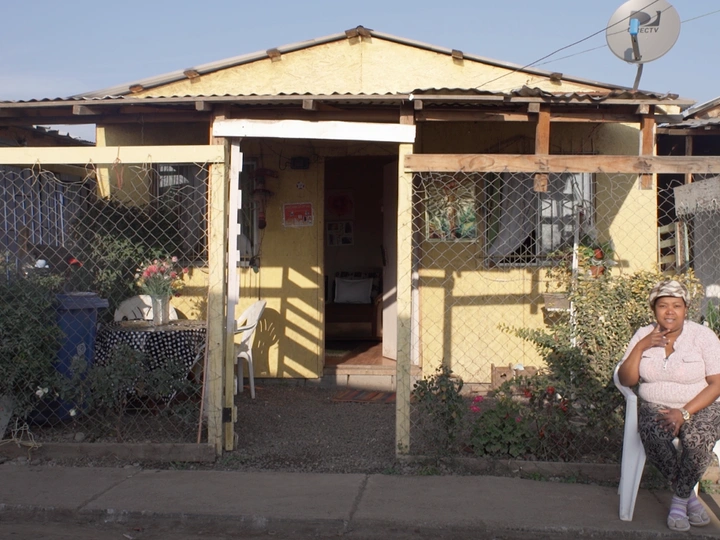Digital Repository of Reflections on Dwelling

Nathalie Guironnet
Laetitia Kozlova
Joaquin Mora
Veronica Wüst
About Us — Proyecto Habitar
I’m Veronica Wüst, co-founder of Habitar Project, a collaborative platform exploring the many ways we imagine, build, and inhabit the idea of home. Rooted in the belief that living spaces profoundly shape our emotional, psychological, and social well-being, our work bridges the physical realities of housing with the intimate, human experiences of dwelling.
We ask: What do we need, beyond walls and roofs, to feel at home? How do we give form to that feeling - or how do feelings shape our surroundings?
Our approach is both creative and research-driven. We collect diverse voices and perspectives through sound, image, text, and film—capturing not only the material spaces people live in, but also the emotional landscapes they carry within them.
The Habitar team brings together multidisciplinary members:
Joaquín Mora — filmmaker with a sense for visual storytelling that connects place, memory, and identity.
Rebeka Bratož Gornik — independent visual researcher and producer, specializing in documentary work at the intersection of architecture, social issues, and anthropology.
Nathalie Guironnet — photographer exploring the place of human beings within the urban context
Laetitia Kozlova — doctoral researcher in Science and Technology of the Arts at the Universidade Católica Portuguesa, with over a decade of experience in radio production and a deep interest in sonic narratives.
Verónica Wüst - Set designer and visual anthropologist. Her interests focus on how memory is linked to physical space and how identity processes affect the environment, as well as what role they play in the construction of living space.
Together, we are building an open, collaborative dialogue on what it means to dwell—one that honors both the tangible structures we inhabit and the intangible feelings that make them home. Having worked separately in the past, we are in the process of founding this new platform.
When it comes to the definition of “home”, each individual develops a unique set of features, shaped by personal experience, memory, and cultural context. As Sara Ahmed notes, “home is something that you carry with you”, thus highlighting the connection between home and personal identity. While we may share some common physical characteristics of home, each of us has a distinct, subjective definition rooted in our unique life narratives. "Habitar Project" seeks to bring together diverse visions of home, housing, and dwelling through an open and collaborative platform, aimed at enriching the ongoing discourse on housing. The project begins with an understanding of the significant role that living spaces play in the personal development of individuals, as well as in their overall well-being. It is driven by a concern for how urban spaces have developed in recent decades, particularly in relation to the evolving cultural significance of dwelling. As cities have become increasingly commodified, we see a pressing need to reflect on their future. Our objective is to create a space where these issues can be explored in depth, with a focus on the experiences of inhabitants, rather than abstract economic or political models.
We wish to provide a counter-narrative to the widespread, sterile representation of living spaces—where housing is predominantly viewed as an investment or financial asset. By redirecting attention to the emotional, affective, and personal aspects of home, we challenge dominant discourses that treat housing as a mere commodity. This project aims to give voice to the realities of urban and rural inhabitants, exploring the ways in which their personal stories can inform and shape broader conversations about how we live.
Through the creation of a multivoiced narrative, we aspire to enrich the discourse on housing by drawing attention to its deep societal significance and advocating for housing policies that prioritize human experience over economic gain.